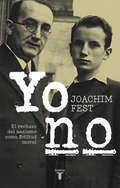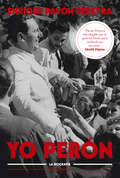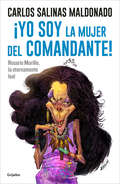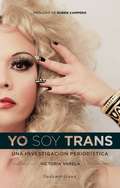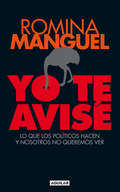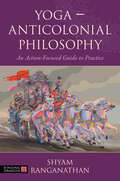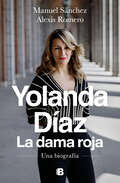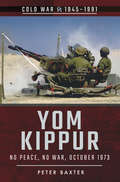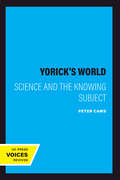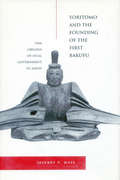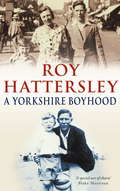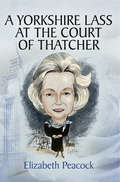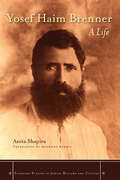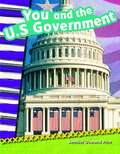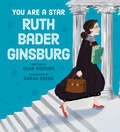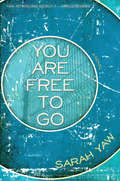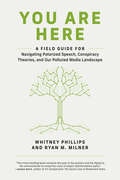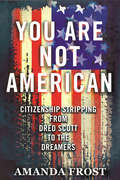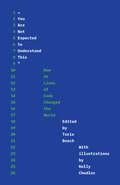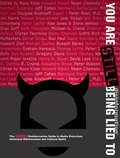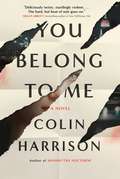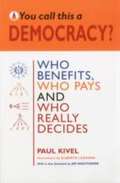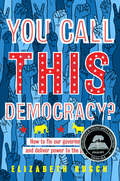- Table View
- List View
Yo no
by Joachim FestUna de las autobiografías morales más importantes de la historia alemana del siglo XX, y entre los mejores libros que se han escrito sobre el nazismo. Nadie se ha esforzado tanto como Joachim Fest por comprender los rasgos y mecanismos del nazismo. Su ponderado análisis del Tercer Reich, sus biografías de Adolf Hitler y de Albert Speer, así como la magistral descripción de los últimos días vividos en el búnker de Hitler que hace en El hundimiento, cuentan con millones de lectores en todo el mundo. <P><P>Pero ¿cómo vivió él mismo, nacido en 1926, el nazismo, la guerra y la derrota de Alemania? Para Joachim Fest -que falleció poco después de terminar este libro-, la profunda tragedia alemana fue la incapacidad de las élites culturales de hacer frente al nazismo. <P><P><P>Atípico y conmovedor, este libro recoge la resistencia al régimen nazi de una familia católica alemana desde la profunda convicción moral de su padre, que asumió la pérdida de privilegios y la precariedad por resistirse a las presiones de unirse al partido nazi y a las estructuras del régimen. En estas memorias de sus años de infancia y juventud, Joachim Fest nos ofrece por primera vez una visión íntima de sus vivencias más directas durante esos años oscuros. <P><P>La temprana prohibición de ejercer la enseñanza que sufrió su padre, su propia expulsión del colegio, su iniciación en el mundo de la ópera berlinesa, sus lecturas durante el servicio militar, o su intento de fuga de un campo de prisioneros americano, son algunos de los episodios protagonizados y narrados en primera persona por un observador nato. Pero sobre todo Fest revela cómo, a pesar de las dificultades, era posible enfrentarse al agobiante acoso ideológico del régimen desde la humildad, la firmeza de principios, la cohesión familiar y la dignidad.
Yo Perón
by Enrique Pavón PereyraPublicado por primera vez en 1993 y escrito por el biógrafo oficial de Perón, este libro permite redescubrir la vida privada, pública y política del líder que más ha influido en la sociedad argentina. Fruto de cuatro décadas de investigación, esta biografía autorizada es, además, una crónica política de inapreciable valor. Su publicación significa un rescate ineludible de la historia argentina reciente. «El peronismo llegó para poner un antes y un después en la historia argentina. Recorrer su trayectoria es un viaje vertiginoso, en el que vale la pena embarcarse -y sé que esto es muy difícil- con la menor cantidad de prejuicios posible. Este libro de Enrique Pavón Pereyra, uno de los hombres que más frecuentó a Perón, está escrito en primera persona y con una prosa ágil y apasionante. El autor fue el elegido por el General para confiarle sus secretos, sus sueños y hasta sus miedos. Es un documento imprescindible para adentrarse en la historia del peronismo y en la biografía de su creador. Pero Pavón Pereyra no solo utilizó el invalorable y exclusivo material de sus entrevistas, sino que profundizó a lo largo de décadas de investigación exhaustiva en los distintos aspectos y protagonistas de la vida de Perón y el desarrollo de su movimiento. Es una gran noticia la reedición de este libro apasionante, que nos ayudará a conocer la vida y el pensamiento de uno de los hombres más importantes de la historia y la política argentinas».Felipe Pigna
Yo soy la mujer del comandante: Rosario Murillo, la eternamente leal
by Carlos Salinas Maldonado“He estado por mucho tiempo bajo la sombra de Daniel, sometida a los rigores del gobierno, sumisa, atada, enclaustrada en unos requerimientos asfixiantes dictados por el poder. No, yo ya no soy esa Rosario”. Rosario Murillo Zambrana, aquella poeta combativa de los años de la malograda Revolución sandinista es, ahora, la mujer de la que depende en parte el poder de Daniel Ortega, viejo guerrillero devenido en dictador. Mística, indómita, brutal, violenta, este relato cuenta la transformación de una mujer que anhelaba el amor, que siempre ha creído en el poder de la magia, en un personaje grotesco, enfermo de poder. El relato se basa en largas entrevistas de Carlos Salinas Maldonado, sus apuntes tras años de seguir al personaje,observarlo, escucharlo, escribir sobre Rosario Murillo. También se sostiene en la denuncia de su hija, Zoilamérica Narváez, contra Daniel Ortega por violación. Recoge información de fuentes cercanas en su momento a Murillo, que han pedido el anonimato. Los hechos son reales, aunque la protagonista parezca emerger de la mejor ficción literaria
Yo soy trans: Una Investigación Periodística
by Alejandra VarelaCon base en los testimonios de diez mujeres trans, pertenecientes atodos los ámbitos socioculturales, y de la mano de cualificadosprofesionales de diversas áreas, la autora recorre los vericuetos deesta identidad de género y nos descubre las diferentes etapas de suproceso evolutivo. "¿El Uruguay actual está en condiciones de entender y aceptarabiertamente el universo trans? ¿Las instituciones sanitarias ofrecen elapoyo y guía necesarios? ¿Los centros de enseñanza están capacitadospara asegurar que la totalidad de sus alumnos sean bien acogidos?Minucioso trabajo de investigación en el que se describen las emociones,las inquietudes y los obstáculos que acompañaron a estas personas hastaque lograron convertirse en las mujeres que son. Entre los testimoniosse encuentran el de Catalina, quien ha criado a siete hijos con cariño ydedicación, el de Laura, quien convive hace años en pareja sin que sufamilia política sospeche cuál es su sexo biológico, y Abigail, quienhabla de sus experiencias en el mundo del espectáculo y sus vínculos conlos famosos." Con base en los testimonios de diez mujeres trans, pertenecientes atodos los ámbitos socioculturales, y de la mano de cualificadosprofesionales de diversas áreas, la autora recorre los vericuetos deesta identidad de género y nos descubre las diferentes etapas de suproceso evolutivo. "¿El Uruguay actual está en condiciones de entender y aceptarabiertamente el universo trans? ¿Las instituciones sanitarias ofrecen elapoyo y guía necesarios? ¿Los centros de enseñanza están capacitadospara asegurar que la totalidad de sus alumnos sean bien acogidos?Minucioso trabajo de investigación en el que se describen las emociones,las inquietudes y los obstáculos que acompañaron a estas personas hastaque lograron convertirse en las mujeres que son. Entre los testimoniosse encuentran el de Catalina, quien ha criado a siete hijos con cariño ydedicación, el de Laura, quien convive hace años en pareja sin que sufamilia política sospeche cuál es su sexo biológico, y Abigail, quienhabla de sus experiencias en el mundo del espectáculo y sus vínculos conlos famosos."
Yo te avisé: Lo que los políticos hacen y nosotros no queremos ver
by Romina Manguel¿Por qué gran parte de los argentinos nos mostramos sorprendidos -o incluso indignados o defraudados- con los presidentes que hemos llevado al gobierno con nuestro voto, a poco de que empiezan a ejercer su cargo? La "sorpresa" sería comprensible si alguno de ellos hubiese sido un recién llegado a la política; pero, en todos los casos tras el retorno de la democracia en la Argentina, los candidatos ganadores -y sus principales contendientes- traían al momento de postularse no menos de veinte años de trayectoria conocida. ¿Por qué gran parte de los argentinos nos mostramos sorprendidos -o incluso indignados o defraudados- con los presidentes que hemos llevado al gobierno con nuestro voto, a poco de que empiezan a ejercer su cargo? La "sorpresa" sería comprensible si alguno de ellos hubiese sido un recién llegado a la política; pero, en todos los casos tras el retorno de la democracia en la Argentina, los candidatos ganadores -y sus principales contendientes- traían al momento de postularse no menos de veinte años de trayectoria conocida.
Yoga – Anticolonial Philosophy: An Action-Focused Guide to Practice
by Shyam RanganathanProviding a decolonial, action-focused account of Yoga philosophy, this practical work from Dr. Shyam Ranganathan, pioneering scholar in the field of Indian moral philosophy, focuses on the South Asian tradition to explore what Yoga was like prior to colonization. It challenges teachers and trainees to reflect on the impact of Western colonialism on Yoga as well as understand Yoga as the original decolonial practice in a way that is accessible. Each chapter takes the reader through a journey of sources and traditions, beginning with an investigation into the colonial -Platonic and Aristotelian- approaches to pedagogy in colonized yoga spaces, through contrary, ancient philosophies of South Asia, such as Jainism, Buddhism, Sankhya, and various forms of Vedanta, to sources of Yoga, including the Upanisads, Yoga Sutra, Bhagavad Gita and Hatha Yoga Pradipika. With discussions of the precolonial philosophy of Yoga, its relationship to social justice, and modern postural yoga's relationship with colonial trauma, this is a comprehensive guide for any yoga teacher or trainee to activate and synergize their practice. Supplementary online resources bring the text to life, making this the perfect text for yoga teacher trainings.
YOJANA NOVEMBER 2017
by Publication Division GoiBuilding a strong industrial sector is always on top of the agenda for policy makers and those governing the country. Industries not only provide goods for inernal consumption and exports but also have highest role in offering employment to the youth of the country. While the big industries like iron & steel, cars, electronic items, etc are in focus while discussing GDP and economic growth, there is a small industrial sector that plays an important role in both manufacturing products and employment generation but is hidden from view of economists and policy makers. This is the micro, medium and small industries sector.
Yolanda Díaz. La dama roja: Una biografía
by Manuel Sánchez Alexis RomeroEsta es la primera biografía de Yolanda Díaz, la política mejor valorada del Gobierno de coalición. La vicepresidenta y ministra que tuvo que luchar contra lo imposible para sacar adelante la aprobación de la polémica reforma laboral. La mujer que podría cambiar la historia de España. Con información de primera mano obtenida a través de más de cincuenta testimonios -entre ellos, los de Pablo Iglesias o la exministra de Trabajo, Magdalena Valerio- y de todo su entorno personal y político, los periodistas Manuel Sánchez y Alexis Romero relatan en este libro la trayectoria fascinante de una mujer que ha llegado a lo más alto de la política española: desde sus primeros pasos en el activismo, la estrecha relación con su padre -el histórico sindicalista Suso Díaz-, su ingreso en el partido comunista, sus primeras campañas -incluidos tanto sus éxitos como sus fracasos-, hasta su entrada en el Gobierno como v icepresidenta segunda y ministra de Trabajo y Economía Social. Yolanda Díaz, la dama roja es el retrato de una mujer luchadora y comprometida con los valores de izquierda, que ha revolucionado el panorama político y que, si nada se lo impide, puede darle la vuelta al tablero de cara a las próximas elecciones generales de nuestro país. Citas:«¿De dónde viene la esperanza blanca de una parte de la izquierda? ¿Qué opinan de ella quienes la conocen desde sus comienzos en política? Esta es la historia de Yolanda Díaz. Sin trampas ni cartón. Sin apriorismos y sin prejuicios».Esther Palomera «Este libro es una travesía apasionante por la política española. Según un histórico dirigente de IU «la izquierda soñaba con ella antes de existir». Es la historia de una mujer que mira más allá del horizonte. Es un libro escrito con rigor y objetividad».Raúl del Pozo
Yom Kippur: No Peace, No War, October 1973 (Cold War, 1945–1991)
by Peter BaxterIt is 25 years since the end of the Cold War, now a generation old. It began over 75 years ago, in 1944long before the last shots of the Second World War had echoed across the wastelands of Eastern Europewith the brutal Greek Civil War. The battle lines are no longer drawn, but they linger on, unwittingly or not, in conflict zones such as Iraq, Somalia and Ukraine. In an era of mass-produced AK-47s and ICBMs, one such flashpoint was the Middle East On the afternoon of 6 October, 1973, the colossus of the Israeli Defence Forces was awakened by a wave of airstrikes, followed by an artillery bombardment along the Suez Canal that preceded a meticulously planned Egyptian invasion of the Israeli-held Sinai. Simultaneously, a massive Syrian armored assault bore down on Israeli positions on the Golan Heights. The day was Yom Kippur, the most holy day on the Jewish religious calendar, and the commencement of a war that would bring the young state of Israel to the very brink of defeat. In the aftermath of the Six-Day War of 1967, a stunning Arab reversal at the hands of the untested Israeli Defence Forces, Israel occupied and held Arab territory on the West Bank, the Sinai Peninsula and the Golan Heights. These were for the most part territorial buffer zones, retained to protect Israel against an inevitable future war, but their ongoing occupation remained an open diplomatic wound. In the meanwhile, a mood of complacency came to affect the Israeli military machine, in the belief that air and armored dominance of the battlefield would, as had been the case in 1967, guarantee a quick victory in any future war.The Yom Kippur War proved the fallacy of this belief, revealing critical weaknesses in Israeli intelligence capability and battlefield strategy. The ferocity and effectiveness of the combined invasion pushed the much-storied Israeli armed forces almost to the point of collapse. Only the rapid resupply of arms and equipment by the United States, and a display of extraordinary reliance and determination by the fighting forces of Israel, rescued the young state from annihilation. The story of the Yom Kippur War is an object lesson in the dynamism of military thinking, the evolution of battlefield technology and the uneasy alliance of east and west during the Cold War era of dtente. Yom Kippur was both a military and political maneuver that adjusted the balance of power in the Middle East, and set the tone for the ideological standoff that continues in the region to this day
Yorick's World: Science and the Knowing Subject
by Peter CawsPeter Caws provides a fresh and often iconoclastic treatment of some of the most vexing problems in the philosophy of science: explanation, induction, causality, evolution, discovery, artificial intelligence, and the social implications of technological rationality.Caws's work has been shaped equally by the insights of Continental philosophy and a concern with scientific practice. In these twenty-eight essays spanning more than a quarter of a century, he ranges from discussions of the work of French philosopher Gaston Bachelard, to relations between science and surrealism, to the concept of intentionality, to the limits of quantitative description. A lively mix of history, theory, speculation, and analysis, Yorick's World presents a vision of science that includes human history and social life. It will interest professional philosophers and scientists, and at the same time its directness will make it readily accessible to nontechnical readers.
Yoritomo and the Founding of the First Bakufu
by Jeffrey P. MassThis book is a much expanded and wholly rewritten treatment of the subject of the author's first book, "Warrior Government in Early Medieval Japan," published in 1974. In this new version, the "warrior" and "medieval" character of Japan's first shogunate is significantly de-emphasized, thus requiring not only a new title, but also a new book. The author's new view of the final decades of twelfth-century Japan is one of a less revolutionary set of experiences and a smaller achievement overall than previously thought. The pivotal figure, Minamoto Yoritomo, retains his dominant role in establishing the "dual polity" of Court and Bakufu, but his successes are now explained in terms of more limited objectives. A new regime was fit into an environment that was still basically healthy and vibrant, leading not to the substitution of one government for another, but rather to the emergence of a new authority that would have to interact with the old. The book aims to present a dual perspective on the period by juxtaposing what we know against our best possible estimate of what Yoritomo himself knew. It is deeply concerned with the multiple balancing acts introduced by this ever nimble experimenter in governing, who was forever seeking to determine, and then to promote, what would work while curtailing or eliminating what would not. The author seeks to recreate step-by-step the movement from one historical juncture to another, whether this means adapting already available information, building anew, or working with combinations of materials. Throughout, the book addresses new topics and offers many new interpretations on subjects as wide-ranging as the 1189 military campaign in the north and the phenomenon of delegated authority.
A Yorkshire Boyhood
by Roy HattersleyIt was not until he was dead and I was forty that I realised my father was once in Holy Orders,' Roy Hattersley tells us in the opening pages of A YORKSHIRE BOYHOOD; so setting the tone for an elegant, continually surprising book.A somewhat precocious only child, Roy grew up surrounded by protective, ever-anxious adults, equally determined to expose him to books and to shield him from germs -- second-hand books were decontaminated by a sharp session in the oven. Uncle Ernest, a timber merchant's clerk celebrated for his skill at 'fretwork and the manipulation of Indian clubs'; a ten-year feud with the next-door neighbours; unwavering devotion to Sheffield Wednesday - all the pleasures and pangs of northern working-class childhood are magnificently evoked as Roy Hattersley takes us through the hardships of the Thirties and the Blitz; and into the 1940s, the 11-plus examination and Grammar School.Completely updated, A YORKSHIRE BOYHOOD is an autobiographical essay of unusual wit, eloquence and candour.
A Yorkshire Boyhood
by Roy HattersleyIt was not until he was dead and I was forty that I realised my father was once in Holy Orders,' Roy Hattersley tells us in the opening pages of A YORKSHIRE BOYHOOD; so setting the tone for an elegant, continually surprising book.A somewhat precocious only child, Roy grew up surrounded by protective, ever-anxious adults, equally determined to expose him to books and to shield him from germs -- second-hand books were decontaminated by a sharp session in the oven. Uncle Ernest, a timber merchant's clerk celebrated for his skill at 'fretwork and the manipulation of Indian clubs'; a ten-year feud with the next-door neighbours; unwavering devotion to Sheffield Wednesday - all the pleasures and pangs of northern working-class childhood are magnificently evoked as Roy Hattersley takes us through the hardships of the Thirties and the Blitz; and into the 1940s, the 11-plus examination and Grammar School.Completely updated, A YORKSHIRE BOYHOOD is an autobiographical essay of unusual wit, eloquence and candour.
A Yorkshire Lass at the Court of Thatcher
by Elizabeth PeacockElizabeth Peacock served as MP for Batley and Spen for 14 years and was one of the most outspoken politicians during her time at Westminster.Famed for her 'no nonsense, just common sense' approach, Elizabeth won many admirers along with a reputation for being difficult. Not afraid to vote against her own party, the Conservatives, Elizabeth genuinely said and did what she thought was right for all Britain, but especially her local constituents.At the time she became an MP, she was one of very few women to do so but quickly made her mark in a very male dominated environment. She was the first woman MP to take part in the Lords v Commons charity motor race at Brands Hatch in which she more than held her own. Elizabeth was heavily involved in the Miners Strike of the 80's and was one of the few to vote against her own government as well as meeting regularly with Arthur Scargill, an unthinkable thing to do for a Conservative MP. She would go on to vote against the Major government too, never to be difficult, but just because she thought their actions weren't in the best interest of the nation. Her outspoken views on the IRA would lead to an unsuccessful but extremely frightening attack on her car whilst parked outside her home.In this candid, honest and often very funny autobiography, Elizabeth reveals what it was like to work at Westminster during those turbulent years. She offers frank assessments of the men and women she worked with including Margaret Thatcher, John Major and many others.A completely absorbing and insightful read.
Yosef Haim Brenner: A Life
by translated by Anthony Berris Anita ShapiraBased on previously unexploited primary sources, this is the first comprehensive biography of Yosef Haim Brenner, one of the pioneers of Modern Hebrew literature. Born in 1881 to a poor Jewish family in Russia, Brenner published his first story, "A Loaf of Bread," in 1900. After being drafted into the Russian army, he deserted to England and later immigrated to Palestine where he became an eminent writer, critic and cultural icon of the Jewish and Zionist cultural milieu. His life was tragically ended in the violent 1921 Jaffa riots. In a nutshell, Brenner's life story encompasses the generation that made "the great leap" from Imperial Russia's Pale of Settlement to the metropolitan centers of modernity, and from traditional Jewish beliefs and way of life to secularism and existentialism. In his writing he experimented with language and form, but always attempting to portray life realistically. A highly acerbic critic of Jewish society, Brenner was relentless in portraying the vices of both Jewish public life and individual Jews. Most of his contemporaries not only accepted his critique, but admired him for his forthrightness and took it as evidence of his honesty and veracity. Renowned author and historian Anita Shapira's new biography illuminates Brenner's life and times, and his relationships with leading cultural leaders such as Nobel laureate S. Y. Agnon, Hayim Nahman Bialik, Israel's National Poet, and many others. Undermining the accepted myths about his life and his death, his depression, his relations with writers, women, and men#151;including the question of his homoeroticism#151;this new biography examines Brenner's life in all its complexity and contradiction.
You And The U. S. Government (Social Studies: Informational Text Ser.)
by Jennifer Overend PriorThis informative book teaches early readers about the important impact the government has on our lives. Readers will learn about taxes, the three branches of government, voting, and more through bright images and supportive text. A table of contents, glossary, and index are included to aid in helping readers better understand the content.
You Are a Star, Ruth Bader Ginsburg
by Dean RobbinsMake way for Ruth Bader Ginsburg!It's RBG like you've never seen her before!Using a unique mix of first-person narrative, hilarious comic panels, and essential facts, Dean Robbins introduces young readers to an American trailblazer. The first book in an exciting new nonfiction series, You Are a Star, Ruth Bader Ginsburg focuses on Ruth's lifelong mission to bring equality and justice to all. Sarah Green's spot-on comic illustrations bring this icon to life, and engaging backmatter instructs readers on how to be more like Ruth!
You Are Free to Go
by Sarah YawWinner of the 2013 Engine Books Novel Prize.Moses and Jorge will never leave the maximum security prison. Outside its walls, Gina, Shell, and Ellen will never escape its influence, or the way it tethers them to one another. When Jorge dies in his cell, lives within and beyond the prison walls are upended, testing the boundaries we all draw to keep the good in, the hurtful out.Sarah Yaw received an MFA in fiction from Sarah Lawrence College and is an assistant professor at Cayuga Community College. She lives and writes in central New York.
You Are Here: A Field Guide for Navigating Polarized Speech, Conspiracy Theories, and Our Polluted Media Landscape
by Whitney Phillips Ryan M. MilnerHow to understand a media environment in crisis, and how to make things better by approaching information ecologically.Our media environment is in crisis. Polarization is rampant. Polluted information floods social media. Even our best efforts to help clean up can backfire, sending toxins roaring across the landscape. In You Are Here, Whitney Phillips and Ryan Milner offer strategies for navigating increasingly treacherous information flows. Using ecological metaphors, they emphasize how our individual me is entwined within a much larger we, and how everyone fits within an ever-shifting network map.
You Are Not American: Citizenship Stripping from Dred Scott to the Dreamers
by Amanda FrostCitizenship is invaluable, yet our status as citizens is always at risk--even for those born on US soil.Over the last two centuries, the US government has revoked citizenship to cast out its unwanted, suppress dissent, and deny civil rights to all considered "un-American"--whether due to their race, ethnicity, marriage partner, or beliefs. Drawing on the narratives of those who have struggled to be treated as full members of "We the People," law professor Amanda Frost exposes a hidden history of discrimination and xenophobia that continues to this day. The Supreme Court's rejection of Black citizenship in Dred Scott was among the first and most notorious examples of citizenship stripping, but the phenomenon did not end there. Women who married noncitizens, persecuted racial groups, labor leaders, and political activists were all denied their citizenship, and sometimes deported, by a government that wanted to redefine the meaning of "American." Today, US citizens living near the southern border are regularly denied passports, thousands are detained and deported by mistake, and the Trump administration is investigating the citizenship of 700,000 naturalized citizens. Even elected leaders such as Barack Obama and Kamala Harris are not immune from false claims that they are not citizens eligible to hold office.You Are Not American grapples with what it means to be American and the issues surrounding membership, identity, belonging, and exclusion that still occupy and divide the nation in the twenty-first century.
"You Are Not Expected to Understand This": How 26 Lines of Code Changed the World
by Kelly ChudlerLeading technologists, historians, and journalists reveal the stories behind the computer coding that touches all aspects of life—for better or worseFew of us give much thought to computer code or how it comes to be. The very word “code” makes it sound immutable or even inevitable. “You Are Not Expected to Understand This” demonstrates that, far from being preordained, computer code is the result of very human decisions, ones we all live with when we use social media, take photos, drive our cars, and engage in a host of other activities.Everything from law enforcement to space exploration relies on code written by people who, at the time, made choices and assumptions that would have long-lasting, profound implications for society. Torie Bosch brings together many of today’s leading technology experts to provide new perspectives on the code that shapes our lives. Contributors discuss a host of topics, such as how university databases were programmed long ago to accept only two genders, what the person who programmed the very first pop-up ad was thinking at the time, the first computer worm, the Bitcoin white paper, and perhaps the most famous seven words in Unix history: “You are not expected to understand this.”This compelling book tells the human stories behind programming, enabling those of us who don’t think much about code to recognize its importance, and those who work with it every day to better understand the long-term effects of the decisions they make.With an introduction by Ellen Ullman and contributions by Mahsa Alimardani, Elena Botella, Meredith Broussard, David Cassel, Arthur Daemmrich, Charles Duan, Quinn DuPont, Claire L. Evans, Hany Farid, James Grimmelmann, Katie Hafner, Susan C. Herring, Syeda Gulshan Ferdous Jana, Lowen Liu, John MacCormick, Brian McCullough, Charlton McIlwain, Lily Hay Newman, Margaret O’Mara, Will Oremus, Nick Partridge, Benjamin Pope, Joy Lisi Rankin, Afsaneh Rigot, Ellen R. Stofan, Lee Vinsel, Josephine Wolff, and Ethan Zuckerman.
You Are Still Being Lied To: The New Disinformation Guide to Media Distortion, Historical Whitewashes and Cultural Myths (Disinformation Books)
by Russ KickA must-have revised and expanded edition of The Disinformation Companys classic anthology, You Are STILL Being Lied To contains more than a dozen all-new essays from contributors like Norman Solomon, Graham Hancock, Alex Jones, John Major Jenkins, Robert Bauval, Richard DeGrandpre, Alexandra Bruce,John Hogue, Gregory Davis, and Scott Creighton on topics ranging from the misleading marketing of antidepressants to the truth about the North American Union, from media consolidation to the New Thought movement.Editor Russ Kicks massive collection acts as a battering ram against the distortions, myths, and outright lies that have been shoved down our throats by the government, the media, corporations, organized religion, the scientific establishment, and others who want to keep the truth from us.An unprecedented group of researchers including Howard Zinn, Noam Chomsky, Howard Bloom, Sydney Schanberg, Michael Parenti, Riane Eisler, Jim Marrs, and many, many others paint a picture of a world where crucial stories are ignored or actively suppressed and the official version of events has more holes in it than Swiss cheese. A world where real dangers are downplayed and nonexistent dangers are trumpeted. In short, a world where you are being lied to.
You Belong to Me
by Dr Colin HarrisonIn this action-packed thriller, a mysterious man from a woman’s past suddenly returns, raising the suspicions of her influential husband—and setting off a series of alarming events.Paul Reeves is an immigration lawyer whose true obsession is collecting maps of New York City, an art form made all the more precious by an increasingly digital world. One day, he abandons work to attend an auction with his neighbor, Jennifer Mehraz, the beautiful young wife of an ambitious Iranian financier, hoping to acquire an unusual map. Midway through the auction, though, a handsome man in fatigues turns up, and Jennifer abandons Paul without a word, leaving him so distracted he almost misses his chance at the map he’s long coveted. The man’s appearance triggers increasingly unfortunate incidents, as the people surrounding Jennifer—including her jealous husband, who is eyeing a career in politics—attempt to figure out who the mysterious stranger is. But Jennifer isn’t talking. Despite Paul’s growing concerns, when he is informed that one of the world’s rarest maps is up for sale, all his thoughts turn to securing it. But will the illicit goings-on across the hall interfere with the biggest deal of his life?
You Call This a Democracy?: Who Benefits, Who Pays, Who Really Decides?
by Paul KivelA penetrating look at the U. S. ruling class - a rich and powerful portion of the population who own tremendous amounts of wealth and who benefit from the way that decisions get made in this country. A look as well at an even smaller group, the power elite - 7,000 to 10,000 (predominately) white men - who make many of the decisions that affect our everyday lives. Most of the time they decide, they and the ruling class benefit, and we pay in our wages, our taxes, our health, the quality of our housing, and often with our lives. The book is carefully researched and referenced, and filled with numerous examples and illustrations. It is an indispensable resource for every person concerned about the undemocratic concentration of wealth and power in our society. Book jacket.
You Call This Democracy?: How to Fix Our Government and Deliver Power to the People
by Elizabeth RuschAmerica is the greatest democracy in the world . . . isn't it? Author Elizabeth Rusch examines some of the more problematic aspects of our government but, more importantly, offers ways for young people to fix them. The political landscape has never been so tumultuous: issues with the electoral college, gerrymandering, voter suppression, and a lack of representation in the polls and in our leadership have led to Americans of all ages asking, How did we get here? The power to change lies with the citizens of this great country—especially teens! Rather than pointing fingers at people and political parties, You Call This Democracy? looks at flaws in the system—and offers a real way out of the mess we are in. Each chapter breaks down a different problem plaguing American democracy, exploring how it&’s undemocratic, offering possible solutions (with examples of real-life teens who have already started working toward them), and suggesting ways to effect change—starting NOW!
